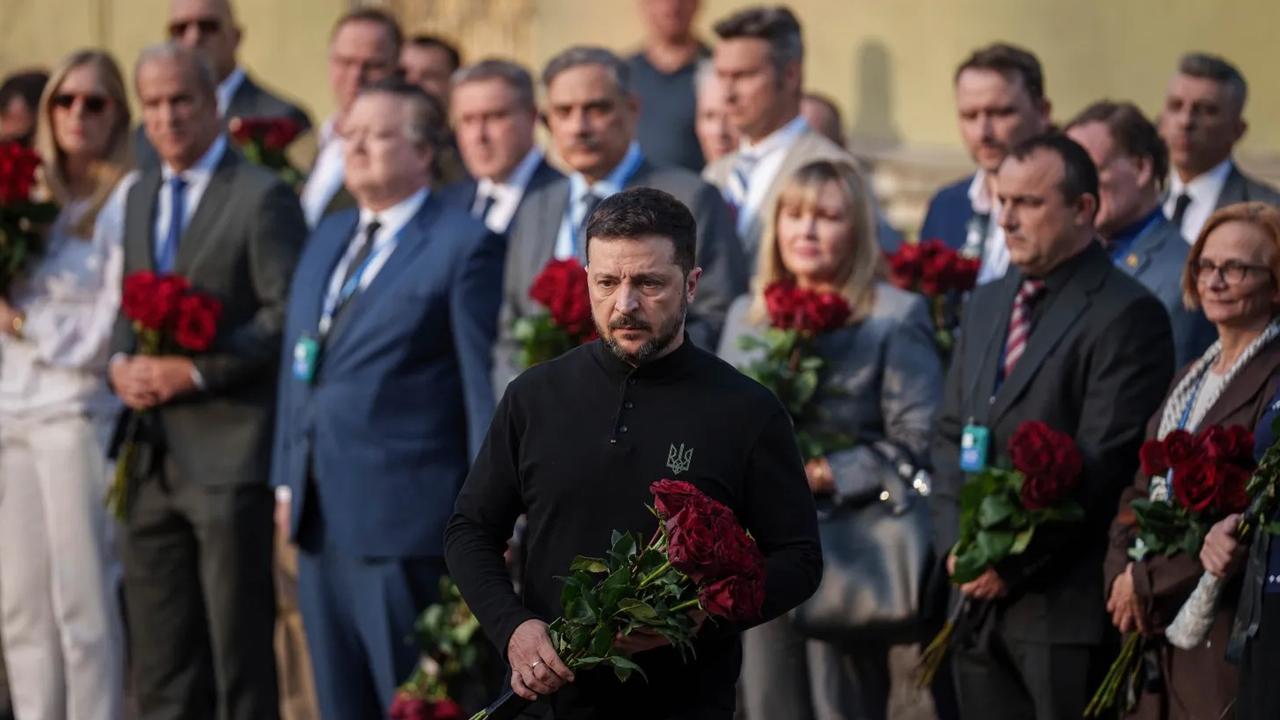Jeremy Corbyn a ‘nightmare scenario’ for Britain’s relationship with Washington
If Jeremy Corbyn somehow finds himself in Downing Street in two weeks’ time, friends in Washington will be hard to come by.

If Jeremy Corbyn finds himself in Downing Street in two weeks, friends in Washington will be hard to come by.
Concerns about his perceived anti-Americanism, anti-Israeli sentiment, anti-Semitism and tendency to sympathise with some of America’s most implacable enemies — from Hezbollah and Hamas to the Maduro regime in Venezuela — are causing deep anxiety in foreign policy circles.
READ MORE: Faith leaders line up against Jeremy Corbyn | Why Australia’s Jews hope it’s not time for Corbyn | Keep out of UK election, Boris Johnson urges Donald Trump
There is particular concern among hawks about the NATO alliance and intelligence-sharing, on which Donald Trump has already said he would reserve judgment if Corbyn came to power.
On Capitol Hill in Washington, politicians are loath to interfere by commenting publicly on the election, but anxious, private conversations about Corbyn are being had at the highest levels. “The election kind of crept up on the Hill, but now it’s a regular subject of conversation,” a senior Republican staffer said.
“We can’t trust Corbyn not to give away everything we plan and say, including unclassified but sensitive diplomatic calculations. So the question is what does that look like: from scaling back intelligence-sharing to no longer engaging (British) diplomats in any meaningful way.”
Another Republican congressional aide said: “If you’re asking if a UK government led by an anti-Semite who makes common cause with the enemies of the West would lead to concerns about intelligence-sharing and defence co-operation, then the answer is yes, of course.
“Nightmare scenarios abound. In the event of a war between Israel and Iran, what is the US government supposed to do if Corbyn starts shipping aid to Tehran?”
WATCH | US President @realDonaldTrump confirms that the NHS will NOT be on the table during post-Brexit trade talks, and directly accuses Jeremy Corbyn of inventing the claim. Desperate Jez will do or say anything to distract from Labour's anti-Semitism scandal! pic.twitter.com/vkM1IY3hF1
— Leave.EU (@LeaveEUOfficial) November 27, 2019
With Western leaders gathering for a NATO summit in London this week, American analysts are wondering how much strain the alliance can bear.
“You’re going into a NATO summit where for the first time no one is worried about Trump being the hand grenade in the room,” said James Carafano, director of foreign policy studies at the Heritage Foundation. “You have Erdogan, Macron, I’m not sure you’d want to throw Corbyn into that mix.”
.@JeremyCorbyn has evidence that our NHS would be on the table in a US-UK trade deal (as @realDonaldTrump said it would!).
— James Foster (@JamesEFoster) November 27, 2019
Simply put, if you don’t have savings, insurance or assets - you will die under a Tory government.#NotForSale #VoteLabour pic.twitter.com/4NU0juE0sB
Last week, embattled Israeli Prime Minister Binyamin Netanyahu also suggested that intelligence-sharing with Britain would be jeopardised in the event of a Corbyn-led government.
Five prominent British military commanders also said intelligence relations would be damaged with the other so-called Five Eyes countries of the US, Australia, Canada and New Zealand.
In a statement issued to The Sunday Times, officers who commanded troops in Afghanistan, Iraq and the Falklands said the Labour leader “has been a friend of our country’s enemies: whether it is Hamas or the IRA”.
Corbyn’s recent refusal to say he would sanction a military hit on the leader of Islamic State was “weak”, they said.
Five prominent British military commanders also feared a Corbyn government would “wreck” the morale of the armed forces and “ravage” recruitment, were he to become prime minister.
The signatories include Lieutenant General Jonathon Riley, who was deputy commander of the international security force in Afghanistan, Major General Tim Cross, the commander of British troops in Iraq, and Major General Julian Thompson, who led British land forces in the Falklands.
They were joined by Rear Admiral Roger Lane-Nott, who led British naval forces during the latter stages of the Gulf War, and Colonel Richard Kemp, a commander of 300 British troops in Afghanistan, who has also worked for the joint intelligence committee.
“The wrong messages from politicians can affect performance and ravage recruitment and retention,’’ they said.
“If the armed forces see that their political leader prioritises the human rights of terrorists over the UK national interest, this will have a significant effect.”
The chiefs said Corbyn was slow in a crisis to back British security
THE SUNDAY TIMES



To join the conversation, please log in. Don't have an account? Register
Join the conversation, you are commenting as Logout